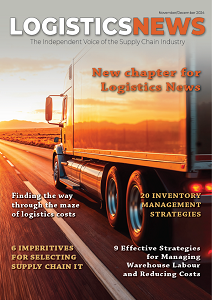Digital transformation is becoming a must in the freight forwarding industry. With uncertainties becoming the norm, freight forwarders will need the right tools to ensure that they can survive and thrive despite the supply chain’s challenges.
Aside from helping freight forwarders control and coordinate the movement of goods, digital freight forwarding solutions help businesses in a variety of ways:
- Giving companies the ability to centralize operations and analyse data in real-time
- Allowing freight forwarders to automate and simplify operational work
- Integrating functions that allow freight forwarders to be more efficient
- Providing companies the ability to measure and analyze data to overcome demand and supply challenges
- Allow freight forwarders to improve customer service by providing real-time shipment data to their clients These advantages will help freight forwarders plan and prepare for the uncertainties expected in the near term. Moreover, the simplification of tasks, and the ease of training, can help solve staffing issues.
As the Internet of Things becomes more widely deployed across all aspects of logistics, artificial Intelligence is seen as the next wave to gain more traction in 2024. AI may come from algorithms that analyze historical data to help logistics software automate procedures and make operations more efficient. AI helps freight forwarding companies by minimizing guesswork in both planning and procurement.
By analyzing trends, AI can help minimize human errors when managing inventory and buying cycles. While manual interventions and scrutiny can help improve compliance, intermediaries like freight forwarders might be well off employing AI to monitor a diverse and ever-growing trade volume.
While customs processes could be strenuous and resource-intensive, the influx of AI-based tools can help hasten workflows. AI-based tools can help read and ingest data with impeccable accuracy, removing manual scribing errors. AI can read and process documents, identifying necessary details that it extracts to auto-populate customs documents. This can then be verified by brokers, expediting the process, with a high degree of data accuracy.

.jpg)


